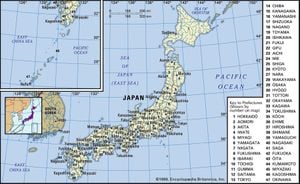OTTAWA – New Democratic Party (NDP) Leader Jagmeet Singh is facing increased scrutiny as he officially becomes eligible for the parliamentary pension this Tuesday, marking six years since his first election to the House of Commons. Critics, particularly from the Conservative Party, have seized upon this milestone, framing Singh's continued support for the Liberal government under Prime Minister Justin Trudeau as primarily motivated by financial self-interest.
Singh, who was elected on February 25, 2019, will soon be eligible to collect around $60,000 annually starting at age 55, potentially racking up as much as $2.3 million over his lifetime if he lives to 90. Such numbers have fueled critiques from opposition leaders who allege Singh's actions are driven by the desire to secure his pension. "He gets his pension, you pay the price," was one jab from Conservative media through campaign ads labeling the NDP leader as "Sellout Singh." This rhetoric is ostensibly aimed at undermining Singh's credibility and position within the government.
Growing allegations suggest Singh is reluctant to push for early elections, fearing they would jeopardize his pension eligibility. Conservative MP Melissa Lantsman called out Singh's approach directly, stating, "Time after time, Sellout Jagmeet Singh has demonstrated he puts protecting his gold-plated pension above the interests of Canadian workers." Ontario Premier Doug Ford reinforced this sentiment, sarcastically noting the importance Singh supposedly places on his pension, stating, “There’s nothing more important to these greedy politicians than collecting a pension.”
Despite this criticism, Singh has consistently denied the charges. Addressing these accusations directly, he referred to the claims as "another tired old lie" propagated by Conservative Leader Pierre Poilievre. Drawing on Singh's previous successful professional life as a criminal defense attorney and his apparent financial independence, some argue his motives for supporting the Liberals might be politically principled rather than financially motivated.
Supporting Singh’s position is the fact he leads the NDP during what many perceive to be one of the most left-leaning governments Canada has ever seen. Analysts have pointed out how this alignment could reflect genuine policy support rather than just self-preservation. Financial constraints also hinder the NDP’s ability to contest elections; the party currently holds approximately $300,000, significantly less than what is typically needed for campaigning effectively.
Yet, Singh operates under pressure politically as polls indicate potential vulnerabilities within his riding. While he has successfully held his seat, he faces challenges from likely Conservative opposition, leading to speculation about Singh's electoral future amid cries of self-serving politics.
Meanwhile, the Liberal Party faced its own internal strife when leadership candidate Ruby Dhalla was disqualified due to alleged financial irregularities. Dhalla claimed these claims were fabricated to silence her dissent against frontrunner Mark Carney. This incident highlights the contentious atmosphere within Canadian politics and mirrors Singh's situation where internal factions and external pressures complicate political messaging.
To add to the challenges, Singh contends with the looming presence of former U.S. President Donald Trump, whose administration’s threats against Canada have reportedly galvanized public discourse back home. Members of the NDP express concerns about how Trump’s strategies might distract voters from local political issues, potentially benefiting the Liberals as they appear steadier through the chaos of international politics.
For Singh, tackling these allegations and perceptions is pivotal as he navigates through both public criticism and internal party dynamics. The intersection of his eligibility for retirement and the broader political narrative creates complex challenges not only for Singh but for his party’s future.
Observers point out, too, how Singh promoting policies he believes align with NDP values is lost amid claims of opportunism. The question on many political analysts' minds remains: Will Singh's actions be seen through the lens of self-interest, or will he carve out significant political space for progressive policy momentum?
With the next federal election on the horizon, Singh's ability to balance the dual pressures of party loyalty and personal accountability could shape his legacy as NDP leader significantly. How Singh responds to these political challenges could determine not only the fate of his party but his opportunity to remain secure as a significant figure within Canada's shifting political terrain.



